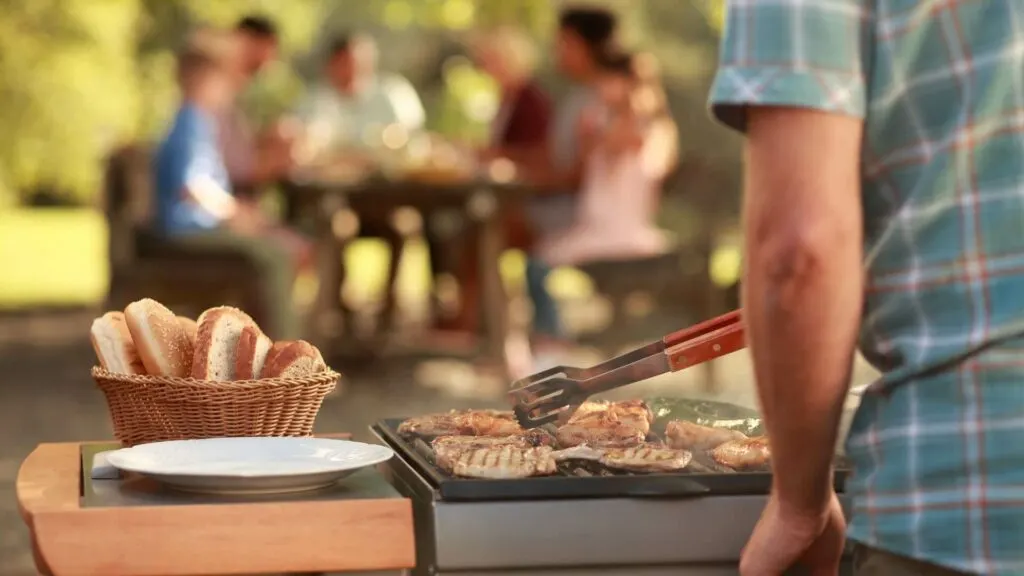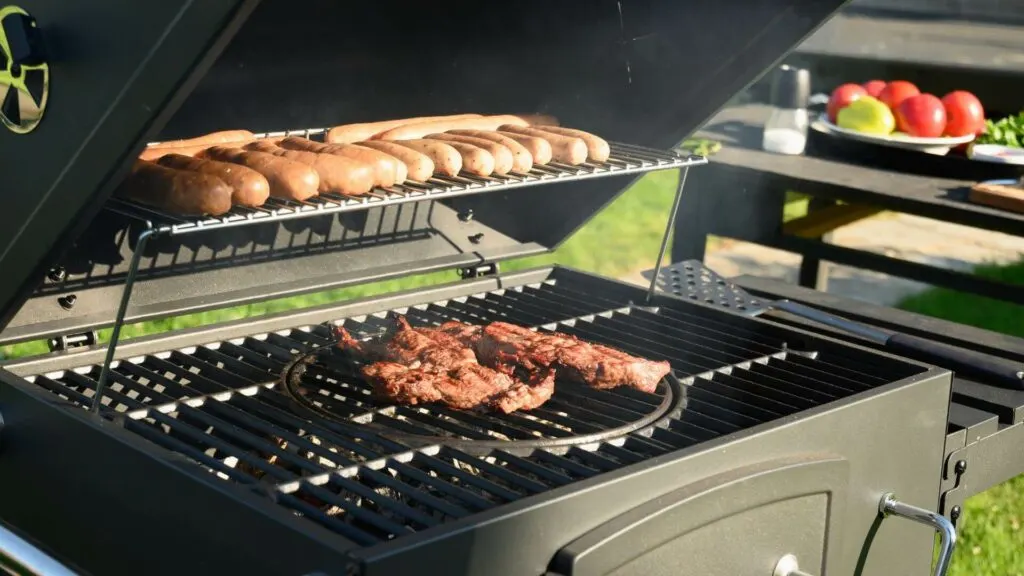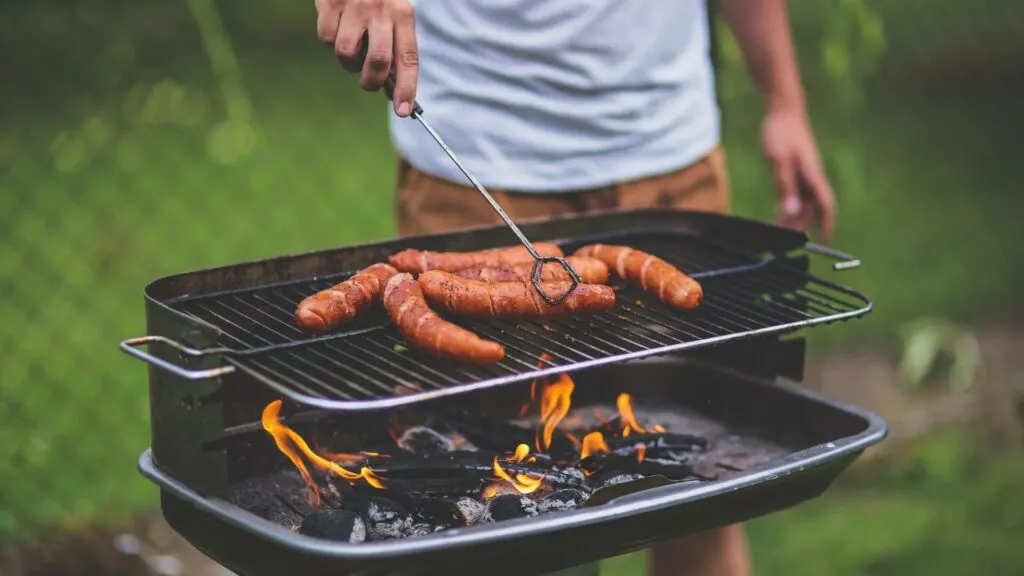To numerous cooking lovers, barbecue is an essential art for their journey and a customary part of many worldwide culinary traditions. The goal could be a backyard barbecue, meeting the family again after years, or simply to ignite your human passion with open fire in a primal cooking manner; a full understanding of how to use the grill is very attractive. However, occasionally, even the most passionate and devoted grill masters can have less-than-expected results. Knowledge and prevention of common grilling errors are very important for someone who seeks to improve his or her grilling skills. This article goes deep into the world of grilling, sharing tips for grilling meat that will guarantee you an amazing barbeque experience.

1. Overlooking the Importance of Preheating
Preheating is one of those grilling sins that should not be committed at any cost. It guarantees adequate searing on meat surfaces while retaining moisture and creating a crusty exterior. By ensuring the required temperature— which might involve waiting 10-15 minutes for charcoal grills and slightly shorter periods for gas— you have already created your success story in grilling. This first step helps you avoid undercooked or unevenly cooked meats, which are too often seen at our backyard barbecues.
2. Ignorance of Meat Preparation
Inadequate meat preparation is another common oversight. This includes everything from failing to allow meats to reach room temperature before grilling, which can result in uneven cooking, to forgetting to pat the meat dry, thus denying it that satisfying sear. In addition, seasoning is usually an afterthought. Just salting and peppering generously before grilling will greatly improve the flavor; or marinating less tender cuts to soften them and add taste.
3. Overcrowding The Grill
It is hard not to understand the temptation of maximizing grill space by arranging all available meat, especially during large gatherings. However, overcrowding the grill restricts airflow and reduces the grill temperature. This makes cooking irregular, and flare-ups are hard to handle. Enough space for your meats ensures even cooking while allowing you to easily relocate them on cooler parts of your grill as necessary.
4. Flipping and Moving That Meat All the Time
When it comes to grilling, patience is a virtue. Not everyone can resist the temptation of flipping or moving meat constantly, but this may prevent meats from developing that perfect crust and cause uneven cooking. In general, meat should just be flipped once during grilling. Have faith in the heat and let the grill do its work. You know when to flip it over because it will come off easily from the grate.
5. Only High Heat
There is a misconception that high heat is always necessary for successful grilling. Although high temperatures are good for searing, many different types of meats benefit from two-zone cooking, i.e., first being seared over high heat and then moved to a cooler part of the grill for further cooking. This technique is especially useful when dealing with thicker cuts since you get evenly cooked meat throughout its thickness without making its exterior overly well-done.
6. Differentiating between Direct and Indirect Heat when Using Different Meats
When grilling various types of meat, one must be able to distinguish between direct and indirect heat. You would want to use direct heat for fast-cooking items like burgers and steaks. Indirect heating is the way to go for thicker cuts and whole birds so that they cook through without burning. This helps you achieve great results by matching the right method to meat.
7. Not Covering When You Should
Many people often ignore grill covers, especially in indirect grill cooking situations. The cover serves as an oven top, spreading heat uniformly around the meat, thus ensuring larger pieces get cooked well up to the middle part. For even cooking and a better taste of smoke, it is crucial that you keep this cover closed whenever you have such dishes.
8. Poking Meat to Check for Doneness
It’s normal to worry whether your meat is fully cooked, yet poking it can make all those precious juices flow away, which will result in much drier meat with less flavor compared to what was initially anticipated. Instead, invest in a good quality barbecue thermometer. Grilling becomes very easy since this indispensable gadget eliminates guesswork from your barbecue preparation guaranteeing accurate inner temperature of your rations always.
9. Neglecting the Resting Time.
In a hurry to serve, many people ignore what may be called the last but crucial step: the meat should cool down. Resting allows the juices forced into the internal meat during cooking to spread throughout it, thus ensuring that every bite of it will be juicy and tasty. Depending on how big the cut is, a rest period of 5-10 minutes under a loose foil tent is usually enough.

10. Forgetting to Clean Your Grill
Finally, failing to clean your grill both before and after use can alter the flavor of your food and increase the chances of flare-ups. Sticking is absent when your grill is clean, and its life span is prolonged as well. When you spend a few minutes on this simple maintenance practice, you will definitely enjoy grilling like never before.
The Final Analysis: What You Need to Know for Grilling Perfection.
Preheat your grill. Heat it up whenever you want to cook meat properly so it is seared correctly and cooked evenly.
Prepare your meat properly. For the best flavor and texture, let the meat come to room temperature, and then pat dry before grilling. Also, marinate or season it ahead of time.
Do not overcrowd the grill. Ensure food cooks indirectly and perfects its nectarous flare-ups with no conflicts among meals.
Minimize flipping. When you flip a lot, you spoil this natural meat-making process by preventing the crust from forming because you flip the meat more than once.
Understand heat zones. The outside should be done over high heat and then finished off on low heat without burning it on the exterior.
Select the proper types of heat—such as indirect or direct—for cooking meats on a grill that is best suited for grilling certain kinds of beef.
Close the lid if necessary. This will help in evenly spreading out heated air within the grill, especially when one is doing indirect grilling
Use a Meat Thermometer: Do not lose any juices, which makes sure that you are cooking perfectly turned-out pieces of meat.
Respect rest times. Let juices redistribute, thereby giving you juicy, flavorsome results.
Keep Grill Clean: Keep your grill cleanest possible if you want great flavor from each grill session and have it longer

In summary, mastery of these principles is the way to a perfect grill. The transition from a beginner to an expert in grilling may appear to be intimidating, but by constantly practicing them over barbecue sessions, the ladder soon becomes familiar and will give you great-tasting food that everyone else will enjoy.

Jessi is the creative mind behind The Coffee Mom, a popular blog that combines parenting advice, travel tips, and a love for all things Disney. As a trusted Disney influencer and passionate storyteller, Jessi’s authentic insights and relatable content resonate with readers worldwide.
